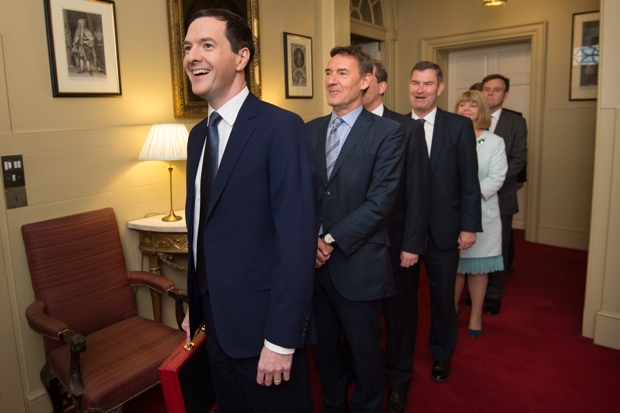Even though the Tories got their way on yesterday’s vote on tax credits, in which they managed to get a laws-of-physics-defying majority of 35, they cannot regard this matter as settled. Indeed, there is still a serious threat of a revolt on this matter.
George Osborne held individual meetings with each of the handful of Tory MPs who were seriously worried about the policy, which lowers the threshold for withdrawing tax credits from £6,420 to £3,850 and speed up the rate of withdrawal as pay rises. That strategy of wearing down each MP on their own rather than allowing them to work as a group clearly worked as in the end only David Davis – who is irreconcilable anyway – and Stephen McPartland voted against, with Andrew Percy abstaining. The others were reassured that there would be sufficient mitigation.
However, MPs may be shocked by the response from their constituents when they either find out that they are going to be hit by the changes, or when the changes do hit. As Sam Coates explained in the Times on Monday, people will only start receiving letters informing them of the change in December, and it may be that many MPs are simply unaware of how devastating the change will be for low-income workers. When those workers start flooding their constituency offices, full of dread at how they’re going to hold everything together, MPs may start to take notice in a way that they didn’t when voting on the legislation.
Frank Field, who has been campaigning furiously on this issue, believes that to pursue the cut without any mitigation will seriously hit the Conservatives’ image as the party of strivers. He tells Coffee House:
‘The Tory backbenchers have begun to light the fuse that will lead to explosions amongst Tory supporters over the next six months as it becomes clearer and clearer this is a full frontal attack on strivers.’
Field believes that this could seriously undermine George Osborne’s campaign to become the next Tory Prime Minister, and that the Tory revolt will build. Even though the measure has been passed by the Commons, serious disquiet about the policy could lead to a U-turn – unless the Chancellor is able to reassure everyone who is concerned that the mitigation for the measure is entirely sufficient.







Comments